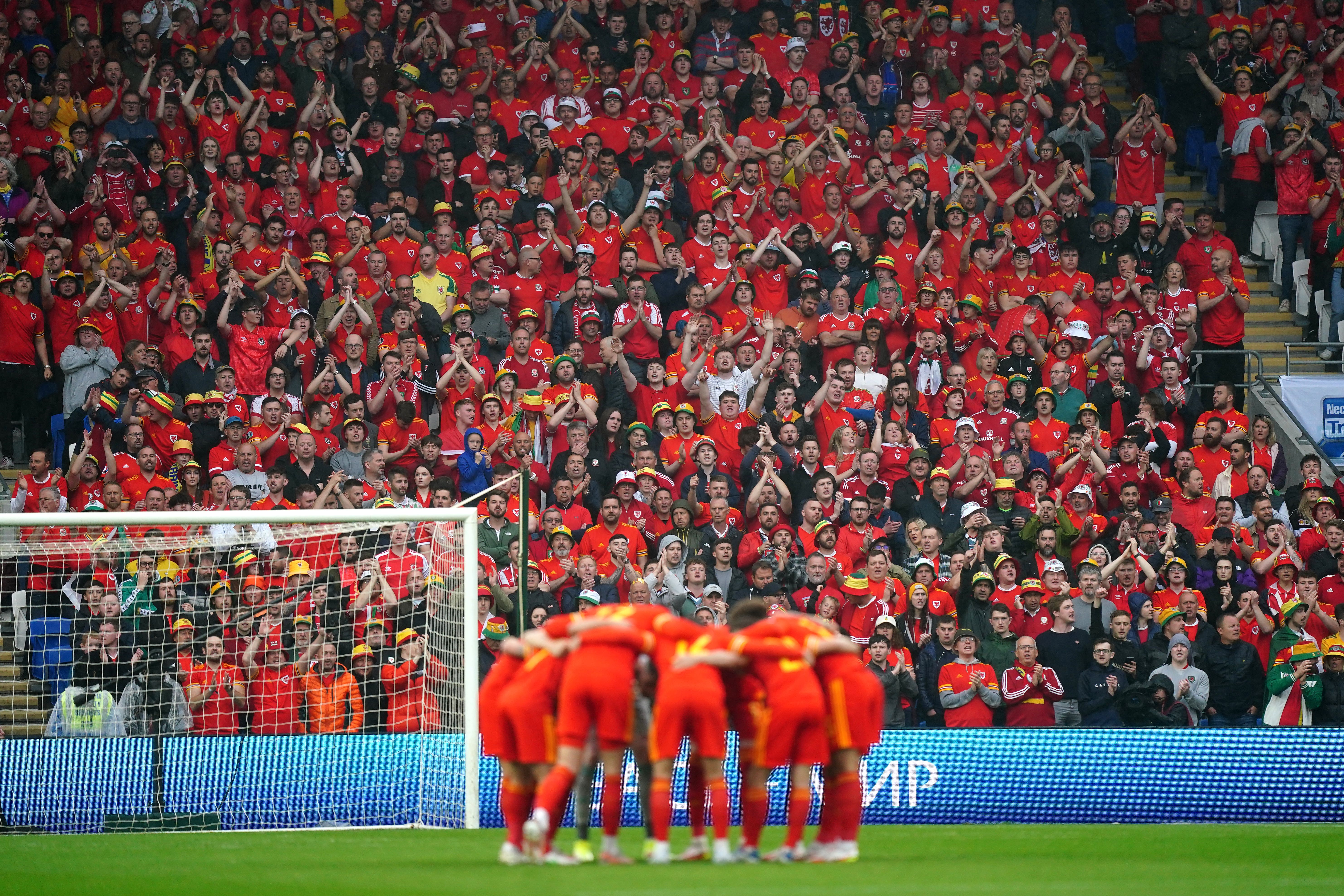Protest song named as Wales World Cup anthem
A remastered version of Dafydd Iwan’s song Yma o Hyd has been released by the Football Association of Wales.

Your support helps us to tell the story
From reproductive rights to climate change to Big Tech, The Independent is on the ground when the story is developing. Whether it's investigating the financials of Elon Musk's pro-Trump PAC or producing our latest documentary, 'The A Word', which shines a light on the American women fighting for reproductive rights, we know how important it is to parse out the facts from the messaging.
At such a critical moment in US history, we need reporters on the ground. Your donation allows us to keep sending journalists to speak to both sides of the story.
The Independent is trusted by Americans across the entire political spectrum. And unlike many other quality news outlets, we choose not to lock Americans out of our reporting and analysis with paywalls. We believe quality journalism should be available to everyone, paid for by those who can afford it.
Your support makes all the difference.Protest song Yma o Hyd has been named the Wales football team’s official World Cup anthem.
A remastered version of Dafydd Iwan’s famous song was released by the Football Association of Wales (FAW) on Monday, a fortnight before the country’s first match against in Qatar, against the USA.
The video to accompany the song includes archive footage documenting the country’s tumultuous past, and appears to show the FAW embracing the track’s overtly political meaning.
Er gwaethaf pawb a phopeth, r’yn ni yma o hyd (Despite everyone and everything, we’re still here)
In recent years, the tune has become synonymous with the success of the national side, with thousands of supporters singing it at every game.
It was originally released in the 1980s, during a dark period for Wales when many of its coal mines were being closed, as a defiant and uplifting song about the survival of the nation and its language.
The song’s main line, “Er gwaethaf pawb a phopeth, r’yn ni yma o hyd”, means “Despite everyone and everything, we’re still here”.
Iwan, a long-time campaigner for the Welsh language, was jailed for three months in 1970 for taking part in a protest painting over English road signs.
The imprisonment of the singer-songwriter sparked demonstrations that gained international attention and were written about in the New York Times.
One of the clips from the video shows the moment he was released from prison a short time later.
Shots of other protests in recent history also feature among clips of the Wales team’s struggles and triumphs during 64 years of trying to qualifying for a World Cup.
They include footage of a pro-language protest, and a demonstration against the flooding of Capel Celyn, a village in Gwynedd, North Wales, which was turned into a reservoir in 1965 to supply water to Liverpool.
Also shown is a republican protest in 1969 against King Charles – then the Prince of Wales – at Welsh culture festival the Urdd Eisteddfod in Aberystwyth.
Iwan had campaigned against the investiture of Prince Charles which took place the same year at Caernarfon Castle.
The debate around the royal title has resurfaced since September when Charles became king and named his son William the Prince of Wales.
The video also features footage of the 1980s miners’ strike to coincide with Iwan’s lyric “Er gwaetha ‘rhen Fagi a’i chriw”, meaning “Despite Margaret Thatcher and her supporters”.
The video repeatedly returns to clips of him singing live after Wales’s 1-0 victory over Ukraine secured the spot at World Cup 2022.
The re-release features the squad singing during post-match celebrations with Iwan on the pitch.
It has also been mixed with the voices of Red Wall fans captured by hidden microphones at Cardiff City Stadium during the two play-off matches that sealed the team’s qualification for their first World Cup since 1958.
Iwan has said he is “immensely proud” of the song becoming the national team’s official song.
“It’s an impossible dream come true and the incredible sound of the Red Wall on this track is exciting and inspiring to hear,” he said.
“This version of Yma o Hyd forever documents a marvellous moment in Welsh history, with all those wonderful voices helping Cymru reach the World Cup with their passion.
“No other nation will have anything like this to inspire their team on the grandest stage of them all.
“So c’mon Cymru, let us tell the world that we are here.”